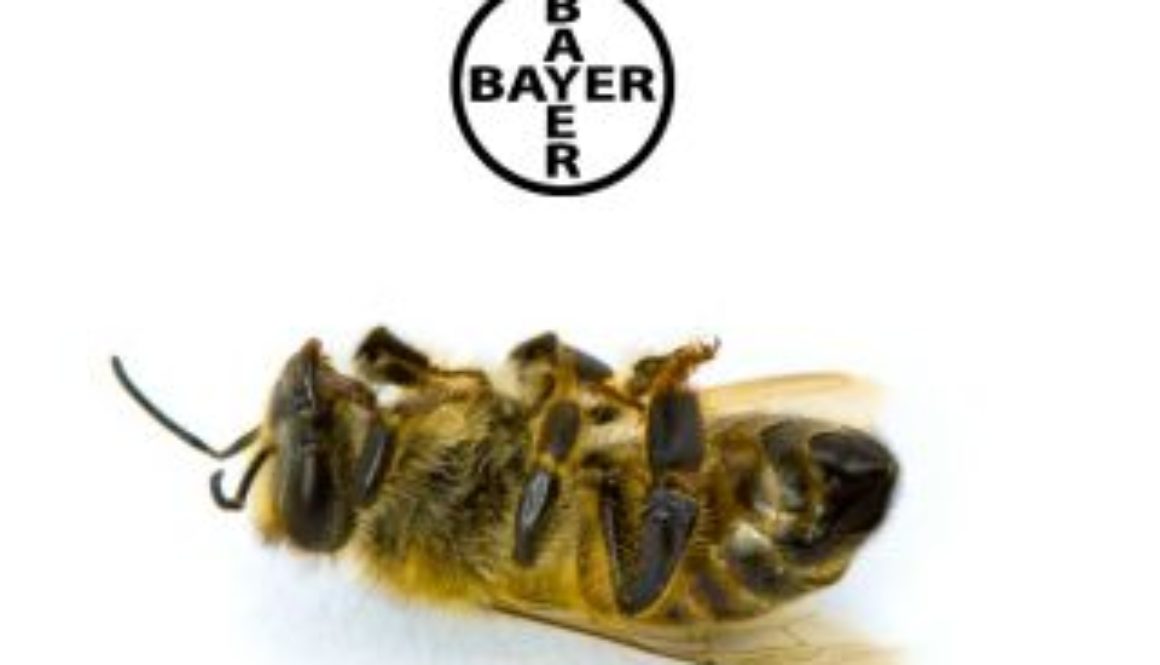
The following is an article written by Toxic Free NC policy intern, Elisa Lazzarino:
Published in The Technician on June 11, 2016.
Bayer is a chemical giant with a more than century of history, and is responsible for the production of some of the most ubiquitous products in homes worldwide. Known for developing aspirin, this multinational corporation expanded to produce agricultural chemicals in 1924 and launched the subsidiary Bayer Crop Science in 2002. Now, it is one of the top six pesticide-producing companies in the world with annual profits of over $10 billion.
Bayer Crop Science, whose North American headquarters is in Research Triangle Park, is vying for more of the pesticides market by merging with another multinational agrochemical corporation, Monsanto. If the two merge, the resulting conglomerate would control a staggering 29 percent of the global seed market and 24 percent of the pesticides market, leaving a corporate empire in control of the future of our food systems.
The potential merger of Bayer and Monsanto is troublesome for a multitude of reasons. This merger would limit farmers’ choice in both conventional and organic agriculture, and researchers worry about the long-term impact of such an entity on our ecosystems due to the persistence of pesticides already produced by these companies. While Monsanto has been the target of mass protests in Europe, Bayer’s production of pesticides known as neonicotinoids (“neonics”) are strongly linked to the large-scale deaths and disruption of honeybees and other pollinators in North America and Europe.
Beekeepers in the U.S. have reported unusually high losses of their hives, with recent losses above 40 percent, costing more than $2 billion annually to our agricultural system. Bee deaths on such a large scale carry grave implications, as honeybees pollinate approximately one-third of the food crops in our diet. Without pollinators, we face the threat of huge spikes in food prices and a sharp decrease in the diversity of our diets.
Rather than take action to rectify the damage, Bayer has doubled down on their rejection of scientific findings, insisting that the blame for bee deaths rests not on the neonics they sell, but rather on external factors such as parasitic mites and incorrect pesticide application by their consumers. Bayer’s resistance disregards data from the EPA and a growing network of scientists, beekeepers and farmers that link neonics to bee deaths, while regulators who work closely with the industry have obfuscated the reality of this crisis.
In 2015, USDA researcher Jonathan Lundgren became the target of what he alleges is a campaign to suppress scientific evidence of the dangers of neonics. Lundgren was fired after speaking to the media about the role of neonics in the mortality of critical pollinators, and alleges that his superiors at the USDA attempted to silence him to protect the interests of agrochemical producers. This crackdown on science exposes the influence of industry over regulators, but Lundgren’s case is more troubling because it suggests a precarious future for the global food system.
While Bayer’s resistance is not unexpected, the potential impacts of Bayer’s products on the entire global food system have prompted farmers, beekeepers and other pollinator advocates to press Bayer into meaningful action for the public good. Bayer’s current inaction and denial of their culpability in a coming global food crisis is why masses of beekeepers, farmers and communities from around the nation and North Carolina will convene at 11:00 a.m. on June 20 at Bayer’s RTP headquarters as part of the Keep the Hive Alive Tour to demand that Bayer take action to address the concerns of the community. In order to save our food system, we must change it to one that puts pollinators and people over profits.
Elisa Lazzarino is a senior studying political science with a concentration in public policy.

